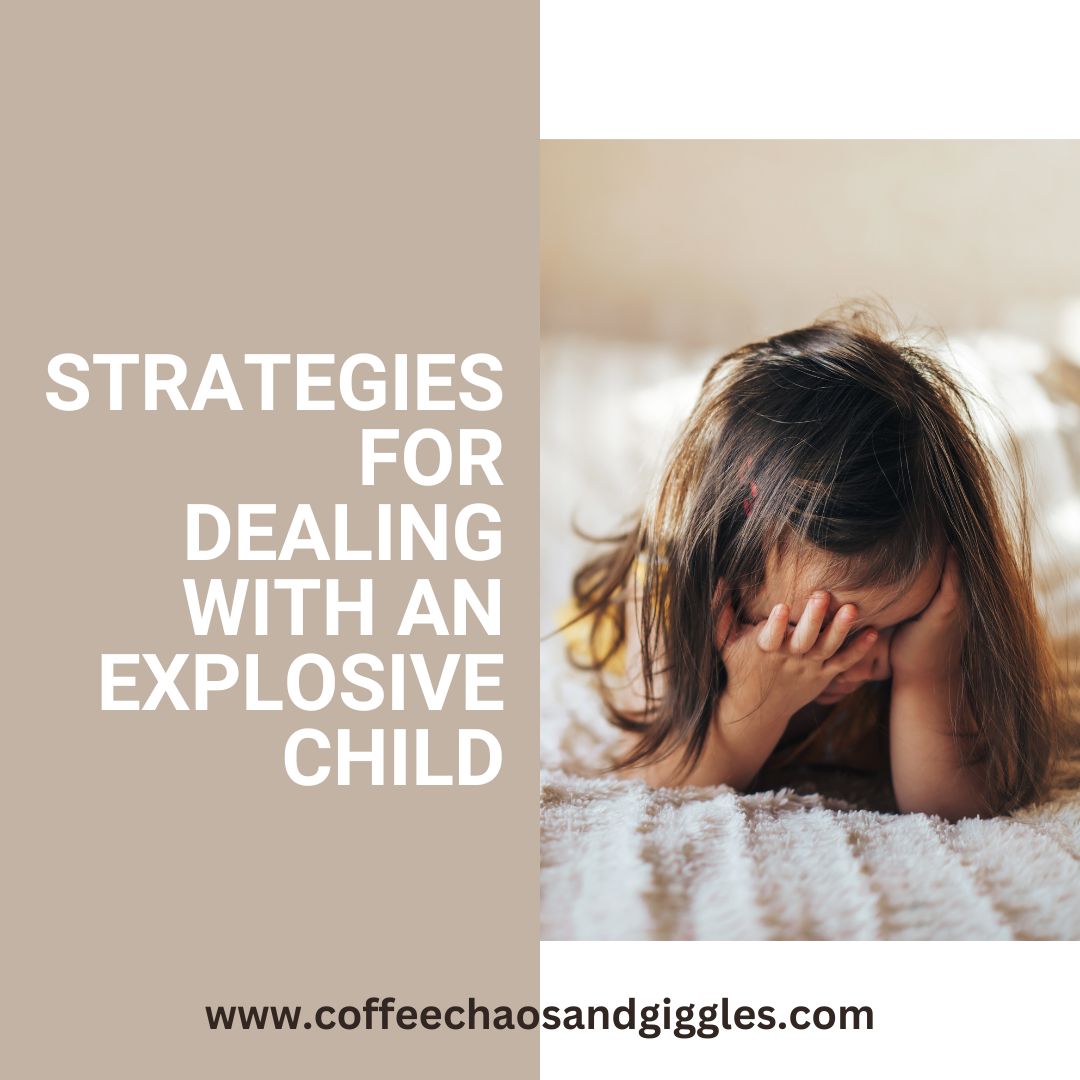Strategies for Dealing with an Explosive Child
Parenting can be a very challenging journey, and when faced with an explosive child, the road can become even more turbulent. An explosive child is one who exhibits intense and frequent outbursts of anger or frustration, often resulting in destructive behavior. As a parent or caregiver, it is essential to approach these situations with empathy, understanding, and effective strategies. In this blog post, we will explore practical techniques to help you navigate the complexities of parenting an explosive child and foster a harmonious environment for both you and your child.

Cultivate Empathy and Understanding:
The first step in dealing with an explosive child is to develop empathy and understanding for their struggles. Recognize that explosive behavior may be an expression of frustration, a difficulty in managing emotions, or an inability to communicate effectively. Try to put yourself in your child’s shoes and consider the underlying reasons behind their explosive reactions.
Establish a Calm and Structured Environment:
Creating a calm and structured environment can greatly help an explosive child feel secure and more in control of their emotions. Set clear expectations, routines, and consistent boundaries to provide stability. Predictability and structure can alleviate anxiety and help minimize explosive episodes.
Teach Emotional Regulation:
An essential skill for an explosive child is learning how to manage and regulate their emotions. Teach your child appropriate ways to express themselves, such as through verbal communication, deep breathing exercises, or engaging in calming activities like drawing or listening to music. Encourage them to identify their emotions and provide them with healthy coping mechanisms to handle their feelings.
Implement Positive Reinforcement:
Positive reinforcement can be a powerful tool when dealing with an explosive child. Recognize and acknowledge their efforts when they exhibit appropriate behavior or manage their emotions effectively. Praise and reward systems can motivate your child to continue practicing self-control and provide an alternative to explosive outbursts.
Effective Communication:
Open and effective communication is vital when dealing with an explosive child. Encourage your child to express their feelings and concerns, and actively listen to them without judgment. Validate their emotions and help them find appropriate ways to communicate their needs and frustrations. Effective communication can reduce the intensity of explosive episodes and foster a sense of trust between you and your child.
Seek Professional Support:
If you find that despite your best efforts, the explosive behavior persists or worsens, seeking professional support is crucial. Mental health professionals, such as therapists or child psychologists, can provide specialized guidance and develop personalized strategies to address your child’s specific needs. Additionally, they can support you in understanding the underlying causes of the explosive behavior and offer coping mechanisms for both you and your child.

Dealing with an explosive child requires patience, understanding, and a multifaceted approach. By cultivating empathy, establishing a calm environment, teaching emotional regulation, implementing positive reinforcement, fostering effective communication, and seeking professional support when needed, you can help your child navigate their intense emotions and develop healthier coping mechanisms. Remember, every child is unique, and it may take time to find the strategies that work best for your child. Stay resilient, stay compassionate, and remember that your efforts are an invaluable contribution to your child’s growth and well-being.



